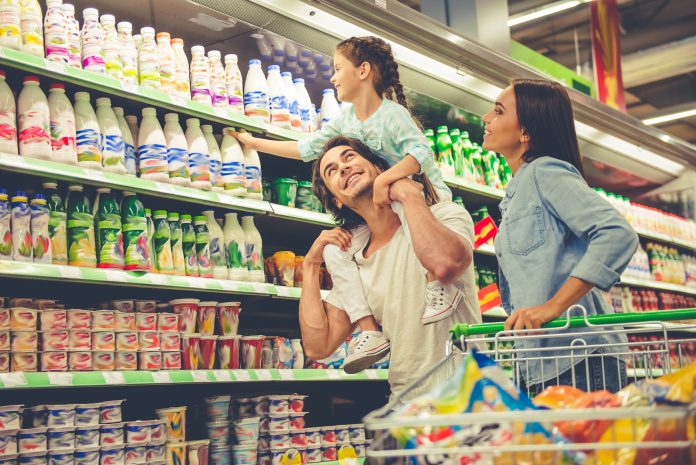Australian retail turnover increased 1.8% in February 2022, seasonally adjusted, according to the Retail Trade figures released today by the Australian Bureau of Statistics (ABS).
The February result follows a 1.6% rise in January 2022, a fall of 4.1% in December 2021, and a rise of 7.1% in November 2021 (revised data).
Director of Quarterly Economy Wide Statistics Ben James says February’s result saw retail sales reach their second highest level on record after November 2021 and turnover continuing to regain lost momentum caused by the peak of the Omicron outbreak in January.
“Lower Covid-19 case numbers in February, alongside the further easing of restrictions over the month, saw consumer spending return to similar behaviour seen previously as states and territories come out of a Covid-19 wave,” Mr James said
“Most discretionary spending industries experienced strong rises once again as consumer cautiousness lessened, leading to an increase in mobility and improved business conditions. On the other hand, non-discretionary industries, such as food retailing, saw their turnover contract this month.”
Cafes, restaurants and takeaways had the largest rise, up 9.7%. This saw the series rise to a record level as businesses overcame staff shortages and closures from previous months to return to more normal trading conditions. Other industries also benefitted from a return to favourable trading conditions including clothing, footwear and personal accessory retailing (11.2%), department stores (11.1%) and household goods retailing (2.3%).
Food retailing had the largest industry fall, down 2.6%, unwinding most of the strength gained during the Omicron outbreak. The other industry to fall was other retailing, down 1.1%.
With no lockdowns in place and restrictions easing, most states and territories saw a rise in retail sales this month, with NSW experiencing the largest rise, up 3.9%, followed by Victoria (1.7%) and Queensland (1.5%).
Two states and territories fell this month, with the largest fall in Western Australia (down 2.9%). This was largely due to floods in late January which cut off a critical rail supply chain from South Australia. The Northern Territory also had a fall, down 3.8%.
National Retail Association CEO Dominique Lamb says the results demonstrate the country’s adjustment to living with Covid.
“The results for February are a very good result for the industry, paired with the increase in January the year is off to a promising start,” Ms Lamb said.
“Consumer spending is returning to normalcy with no lockdowns in place, higher vaccination rates and the easing of restrictions,” she said.
“More workers are returning to business districts and more patrons returning to shopping centres, which is causing a strong rise in discretionary spending,” she said.
“With businesses returning to normal trading conditions and overcoming staff shortages supply chain issues from previous months, we are pleased to see cafes and restaurant spending increase by 9.7 per cent.”
Despite the increase, Ms Lamb said consumer confidence is low, with small businesses feeling the pinch from inflation.
“We hope to see budgetary measures from the government this week that addresses the rising cost of living,” Ms Lamb said.
“We need to see support from the government that promotes spending, and the NRA will continue to advocate on this matter to get our local and family-owned businesses thriving again.”
Robust retail sales continue despite a disrupted February
The Australian Retailers Association CEO Paul Zahra says it’s pleasing that retail trade remains on a strong trajectory overall despite ongoing disruption to supply chains.
“It’s encouraging to see Department stores starting to see some growth after many months of decline, as well as the continued uplift in fashion and hospitality – two categories that have been deeply impacted by Covid.
“Whilst these numbers can give us cautious optimism about the year ahead, small businesses are facing their own unique set of challenges which cannot be ignored. CBD and travel retailers continue to face significant pressures, and we are mindful of ongoing volatility in our economy.
“Business costs are increasing, there’s inflationary pressures and staff shortages, while supply chain delays and costs are continuing to bite. Business disruption is very much an ongoing concern with the Ukraine conflict abroad creating a ripple of cost pressures for retailers and customers and at home flooding has displaced thousands of Australians and impacted many businesses.
“Small businesses feel these impacts more given they don’t have the same level of resources or cash reserves to cope with the uncertain economic environment.
Mr Zahra said the ARA forecast for Easter trading is positive.
“Looking ahead, the Easter long weekend will be the first holiday period in two years where people will be travelling largely free of Covid rules and border restrictions. Our research shows Australians will be spending $7.1 billion on trips away, with around $1.5 billion to be spent on food and chocolates. With the economy opening, people have been able to book local holidays with confidence and that’s set to be a major boost to tourism operators and local retailers who are heavily reliant on the visitor dollar,” Mr Zahra said.




